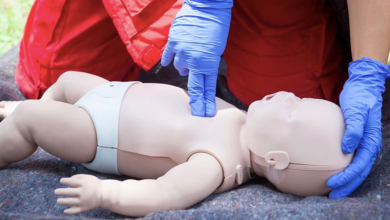Polygraph Services in North Carolina: Everything Explained

Introduction
Polygraph tests, more commonly known as lie detector tests, have long been a subject of interest, debate, and controversy in the United States. In North Carolina, these tests occupy an unusual place in society. On one hand, they are sought out by law enforcement, attorneys, employers in certain industries, and even individuals dealing with personal issues. On the other hand, their legal standing is limited, and questions about their accuracy remain unresolved. Understanding polygraph services in North Carolina requires looking closely at how they are offered, who provides them, and in what contexts they are used.
What Polygraph Services Include
Polygraph services in North Carolina typically involve more than simply attaching a machine and asking a few questions. A professional examiner starts with a pre-test interview, during which they gather background information and establish rapport with the subject. This is followed by the actual test, where sensors record physiological responses such as breathing rate, skin conductivity, blood pressure, and heart rate. Once the test is complete, the examiner interprets the data and provides a report or verbal summary of the results. Some services also include consultation for legal or personal decisions, helping clients understand what the results mean in context.
Who Provides Polygraph Services in North Carolina?
In North Carolina, polygraph services are typically offered by trained and certified examiners. Many of these professionals have backgrounds in law enforcement, criminal investigations, or psychology. Their training allows them to operate the polygraph equipment correctly and to interpret the data responsibly. Certification is important because the credibility of polygraph results depends heavily on the examiner’s skill. For this reason, individuals seeking polygraph services often look for examiners with memberships in professional associations or extensive experience in investigative work.
See also: Benefits of Opening a Business Account for Entrepreneurs
Common Situations Where Polygraphs Are Used
Polygraph services in North Carolina are sought out in a variety of contexts. Law enforcement agencies may request polygraph testing during criminal investigations, often to verify statements or narrow down suspects. Attorneys sometimes recommend polygraph tests for clients who want to strengthen their credibility. Employers in sensitive industries such as security or pharmaceuticals may use lie detector tests under specific legal conditions. On a personal level, private citizens sometimes turn to polygraph services to resolve issues of trust in relationships, such as concerns about infidelity or dishonesty. This wide range of uses shows that polygraph services are not limited to the criminal justice system.
Legal Limits on Polygraph Services
Despite the availability of polygraph services, their use in North Carolina is restricted by law. Federal regulations under the Employee Polygraph Protection Act (EPPA) prohibit most private employers from requiring or requesting polygraph tests from employees or job applicants. There are exceptions for specific industries, but even in those cases, strict guidelines apply. In court, polygraph results are rarely admissible unless both parties agree, and even then, a judge can refuse them. These legal limits ensure that polygraph services in North Carolina are not misused or relied on as definitive proof in legal disputes.
Accuracy and Reliability Concerns
A major issue that comes up when discussing polygraph services in North Carolina is the question of accuracy. While many examiners claim high success rates, critics point out that polygraph results can be influenced by factors unrelated to deception. Anxiety, medical conditions, or even the wording of questions can lead to misleading results. For this reason, most courts and legal experts treat polygraph results as supplementary information rather than hard evidence. Still, clients often find value in the process, whether as an investigative tool or as a means of reassurance in personal matters.
Costs of Polygraph Services in North Carolina
Another important aspect of polygraph services is cost. Prices for a lie detector test in North Carolina vary depending on the purpose, the examiner’s experience, and the complexity of the case. A straightforward personal polygraph, such as one used in a relationship dispute, might cost less than a specialized test for a legal case. Some providers offer package deals that include pre-test consultation, the test itself, and a written report. For clients, the investment is often justified by the potential clarity or credibility the test can provide, even if the results are not legally binding.
Voluntary vs. Mandatory Testing
In North Carolina, most polygraph services are voluntary. People choose to undergo testing for personal or professional reasons, often in hopes of clearing their name or proving their honesty. In rare cases, employers in exempt industries may request polygraph tests, but employees still have certain rights and protections. Mandatory polygraph testing is extremely limited due to federal and state laws. This distinction is important because it highlights the balance between the availability of polygraph services and the protections in place to prevent abuse.
How to Choose a Polygraph Examiner
For anyone in North Carolina considering a polygraph test, selecting the right examiner is crucial. A qualified examiner should have professional certification, relevant training, and a clear explanation of how the process works. They should also be transparent about the limitations of polygraph testing and avoid making exaggerated claims about accuracy. Some clients prefer examiners with backgrounds in law enforcement, while others value experience in private investigations. Ultimately, the examiner’s professionalism and credibility can make a significant difference in how the results are interpreted and used.
Public Perception of Polygraph Services
Polygraph services in North Carolina are shaped not only by laws and science but also by public perception. Many people still associate lie detector tests with television portrayals, where results seem instant and absolute. In reality, the process is more nuanced and open to interpretation. This gap between perception and reality often affects how clients approach polygraph services. Some arrive with high expectations of definitive answers, while others are skeptical from the start. Professional examiners usually work to manage these expectations, making sure clients understand both the potential and the limitations of the service.
The Future of Polygraph Services in North Carolina
The future of polygraph services may involve a mix of traditional methods and emerging technologies. Researchers are exploring alternatives to polygraphs, such as brain-based lie detection and artificial intelligence-driven tools. If these methods prove more reliable, they may reshape the way lie detection is viewed in North Carolina and beyond. At the same time, polygraph services are likely to remain in demand, particularly for personal disputes and investigative purposes. As long as people continue seeking answers about truth and deception, there will be a role for lie detector services in the state.
Location North Carolina
- Charlotte – 2015 Ayrsley Town Blvd, Charlotte, NC 28273
- Mooresville – 106 Langtree Village Drive, Mooresville, NC 28117
- Greensboro – 717 Green Valley Road, Greensboro, NC 27408
- Durham – 2530 Meridian Pkwy, Durham, NC 27713
- Raleigh – 4242 Six Forks Rd, Raleigh, NC 27609
Conclusion
Polygraph services in North Carolina offer a range of applications, from criminal investigations to personal disputes. They are provided by trained professionals who follow strict procedures, and they come with both benefits and limitations. While the results are rarely admissible in court, they can still influence decisions, provide reassurance, and guide investigations. Laws such as the EPPA ensure that individuals are protected from unfair use, while voluntary testing remains widely available. For anyone considering a polygraph test in North Carolina, the key is to approach it with realistic expectations, an understanding of the legal context, and a clear sense of what the results can and cannot provide.



